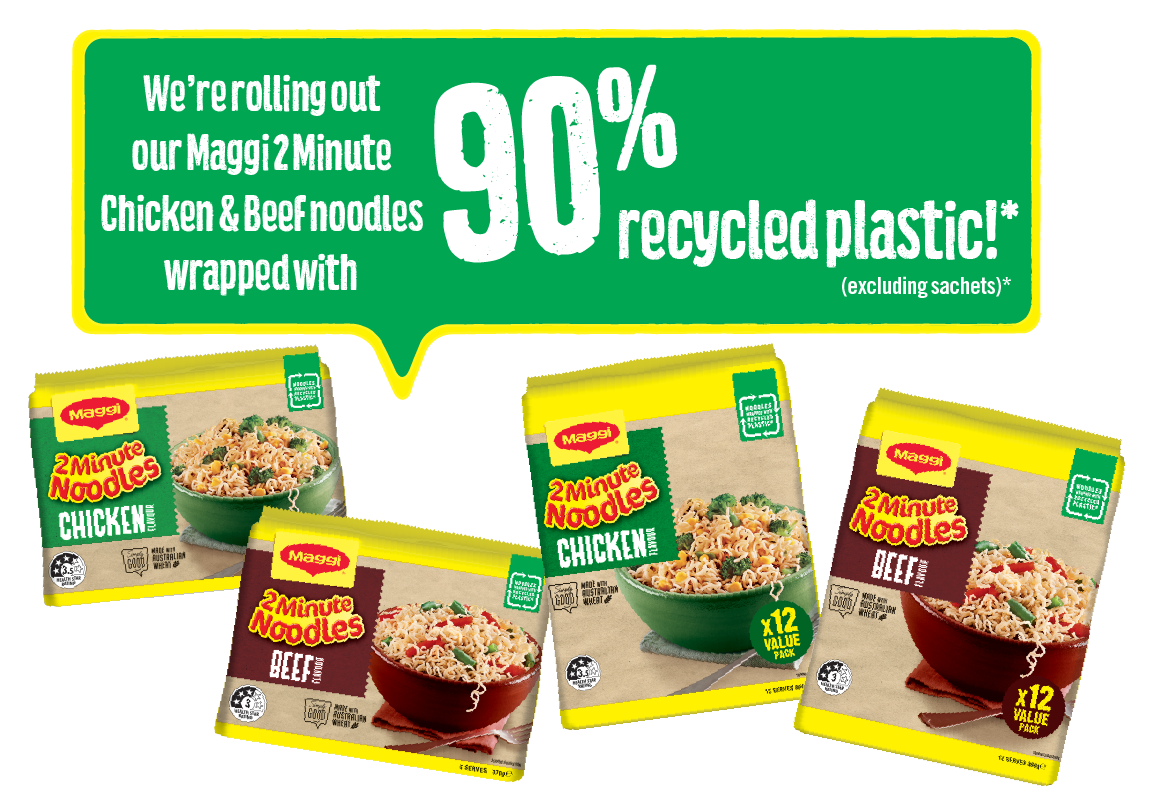Sustainability

Our Journey So Far:
With more to come!
We want to increase the amount of recycled plastic, and reduce the amount of virgin plastic we are sourcing, on as many Maggi noodle wrappers, as fast as possible. In 2024, we started by wrapping our Maggi 2 Minute Noodles and our Maggi Fusian Noodles with 50% recycled plastic. We are now proud to do even better, wrapping our noodles with 90% recycled plastic, starting with our Maggi 2 Minute Chicken & Beef Noodles.
Sourcing recycled plastic is part of Nestlé's global ambition to reduce the amount of virgin plastic we use by one third by 2025.
*We’re rolling out our Maggi 2 Minute Chicken & Beef noodles wrapped with 90% recycled plastic using mass balance, excluding flavour sachets for the Chicken 5pk, Chicken 12pk, Beef 5pk and Beef 12pk.

Working towards a waste free future
Our vision is that none of our packaging, including plastics, ends up in landfill, in oceans, lakes and rivers. We are working hard to deliver on this and help achieve a waste-free future.


